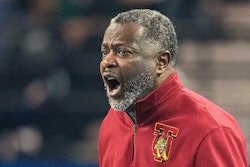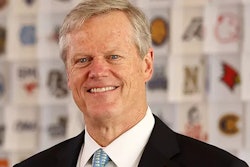Every Saturday night in the fall, university football quarterbacks around the nation get a moment in the spotlight. Cameras from ESPN, ABC, NBC, and Fox News center the faces of male athletes on the big screen.
Since the June 21 Supreme Court ruling on names, images, and likeness (NIL), NCAA college athletes are able to market themselves with third parties, not affiliated with a university, seeking sponsorship.
Many Saturday night stars have already signed agreements.
Louisiana State University (LSU) Quarterback Myles Brennan signed with Smoothie King; University of Miami quarterback D’Eriq King signed a sponsorship with College HUNKS Hauling and Junk Moving; University of Alabama quarterback Bryce Young signed with Cash App; Auburn University quarterback Bo Nix signed with Milo’s, a sweet tea company based in the south.
So far, many of the female athletes who signed an NIL agreement are social media influencers. Hanna and Haley Cavinder, twins on the Fresno State women’s basketball team, have 3.3 million TikTok followers and just signed a sponsorship deal with Boost Mobile. Olivia Dunne, a gymnast from LSU, has over 4 million TikTok followers and is in negotiations with several different companies, negotiating for upwards of seven figures.
For many of these young women, the opportunity to play a college sport exists because, almost fifty years ago, Title IX became federal civil rights law. Title IX states that “No person in the United States shall, on the basis of sex, be excluded from participation in, be denied the benefits of, or be subjected to discrimination under any education program or activity receiving federal financial assistance.”















